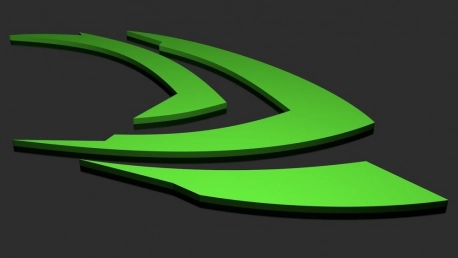Nvidia has recently sought antitrust clearance from the European Union for its takeover of British chipmaker ARM, a deal worth $54 billion, according to a document filed with the European Commission. However, European regulators are expected to voice similar concerns to their British counterparts. Let’s discover why Nvidia’s $54 billion deal to buy ARM raises competition concerns.
A Hungry Tech Giant Is Always Going to Be a Threat
The world’s largest maker of graphics and artificial intelligence chips announced the deal last year, sparking concerns in the semiconductor industry over whether ARM will be able to remain a neutral player licensing intellectual property to customers and competing companies.
Nvidia promised in September 2020 that it would continue with ARM’s model of open licensing and customer neutrality, while expanding the UK company’s portfolio with Nvidia technologies. Until now, the ARM architecture has been used under license by a number of semiconductor manufacturers, including Nvidia, Intel, AMD, Qualcomm.
While concerned ARM customers include Qualcomm, Samsung Electronics, and Apple, customers such as Broadcom, MediaTek and Marvell support the deal. It’s important to mention that ARM, owned by Japan’s SoftBank Group, is a major manufacturer in the global semiconductor market, which is important for vital new technologies like artificial intelligence and 5G networks.
“We are going through the review process and want to work with the European Commission to address any concerns they may have. This transaction will benefit ARM, its licensees, competition, and the industry,” Nvidia said in a statement.
Moreover, Nvidia suggested potential ways to use machine automation to compare code to show that the code it’s licensing is the same as it is using for its own designs.
Nvidia Is Facing Several Problems with Regulators
European officials say Nvidia’s list of promised concessions is not enough to guarantee that the deal won’t seriously harm competition in the market. According to the EC website, the company filed with regulators on Wednesday, September 8, and the European Commission set an initial October 13 deadline to rule on the transaction. With rivals and chip customers lining up to criticize the deal, the EU is likely to extend its review by at least another four months to examine potential competition concerns.
“The Proposed Transaction concerns the acquisition of all shares in, and thus sole control of, Arm Limited (“Arm”) by NVIDIA Corporation (“NVIDIA”).
NVIDIA and Arm are both active in the semiconductors industry, albeit at different levels:
– NVIDIA designs and supplies accelerated computing platforms including graphics processing units for gaming, datacenters, professional visualization, and automotive applications. Through its acquisition of Mellanox, completed in April 2020, NVIDIA also supplies network interconnect products and solutions.
– Arm is not active in the supply of processors or computing platforms. Instead, Arm develops and licenses IP to semiconductor suppliers, largely for end-use in mobile devices and to a lesser extent in datacenters, automotive, PC, and Internet-of-Things, among others.
The Parties’ businesses are highly complementary, relate to different levels of the semiconductor value chain, and do not compete. The Proposed Transaction will instead combine NVIDIA’s and Arm’s activities to create a more competitive and innovative computing business that is better equipped to meet the growing demands of the Artificial Intelligence era”, the document states.
On the other hand, the Competition and Markets Authority (UK regulator) warned that the deal could harm competition and weaken rival companies, announcing a longer investigation.
In April, U.K. Culture Secretary Oliver Dowden asked the Competition and Markets Authority (CMA) to prepare a report on whether the deal could be deemed anticompetitive, along with a summary of any national security concerns raised by third parties.
“The assessment, delivered in late July, contains worrying implications for national security, and the U.K. is currently inclined to reject the takeover, a person familiar with government discussions said. The U.K. is likely to conduct a deeper review into the merger due to national security issues, a separate person said,
“No final decision has been taken, and the U.K. could still approve the deal alongside certain conditions, the people added. Dowden is set to decide on whether the merger needs further examination by the U.K.’s competition authorities,” according to Bloomberg.
It’s too early to say whether the deal will be blocked outright, and there’s a chance the two sides could reach a deal if Nvidia makes further concessions. Of course, the biggest fear is that Nvidia might not allow rival companies access to ARM designs once the deal is sealed.









